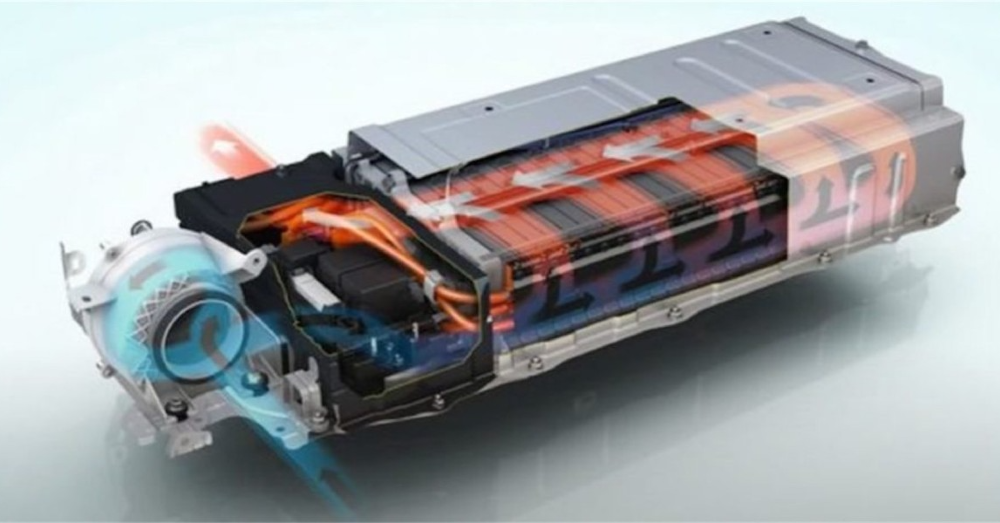Toyota recently announced a solid-state battery technology breakthrough that could enter the EV market as early as 2027, truly challenging gas-powered vehicles.
One of the largest questions looming over the automotive world is whether or not battery-powered vehicles will eventually make gas and diesel-powered vehicles obsolete. It wasn’t long ago that EVs were mostly experimental, but those experiments have brought us increased numbers of EVs each year. Today, we live in a world where EVs are growing, hybrids and PHEVs are the stepping stones, and gasoline cars will eventually become extinct, especially if what Toyota says is true.
What are the greatest challenges facing EVs?
Two of the biggest challenges are driving range and charging times. Today’s EVs charge much faster than early models, which could only recharge using a traditional 120-volt outlet. In some cases, the lithium-ion batteries used today allow EVs to drive for more than 400 miles on a single charge but most average about 300 miles. While this driving range rivals gas-powered vehicles, road trips are challenging because of driving range, charging times, and infrastructure.
When an EV heads away from home on a road trip, the infrastructure problem is the low number of charging stations. The federal government and automakers are addressing this issue alike. The driving range problem arises with the limit placed on fast charging an EV using a Level 3 charger. Most EVs can only charge to 80% of the full range at these chargers, meaning an EV with 300 miles of range will only offer 240 miles for the second leg of the trip. Although automakers have reduced charging times to less than one hour at these fast chargers, this is still much longer than when refilling a gas tank with gasoline.
What has Toyota announced?
Toyota’s recent breakthrough could bring solid-state batteries to the EV market to replace lithium-ion batteries. Solid-state batteries are used in pacemakers and smartwatches, providing longer battery life between charges. Unfortunately, they haven’t been durable enough for electric vehicles. Still, Toyota and other automakers have placed a lot of confidence in building these batteries as the next step in battery technology for EVs. Toyota announced they should be able to bring solid-state batteries to the EV market by 2027, which could allow vehicles to drive for up to 745 miles on a single charge.
What about the manufacturing cost?
As expected with anything that comes from Toyota, the movement to these new batteries shouldn’t increase the price of EVs much. Toyota claims they are working toward a more affordable manufacturing process, which could lean more on automated processing and not human labor on an assembly line. While problematic for some groups, a cheaper way to build these batteries is an important part of bringing the cost of EVs down to a more manageable level. In today’s market, many consumers can’t afford the high price of EVs, but if made more affordably, this could change.
Solid-State Batteries can make driving better and more affordable
If these new batteries make it to the market soon, gas-powered vehicles might quickly become obsolete. Solid-state batteries aren’t limited at fast charging stations the same way as lithium-ion batteries. Instead of only reaching 80% of the full charging capacity, solid-state batteries can reach 100% of the charge and do so much faster than their lithium-ion counterparts. EV charging stations are priced at the time of use, not the quantity, which means charging a Toyota EV with a solid-state battery can be much more affordable than charging any EV with a lithium-ion battery.
EVs are better for the environment, and this is the next step
Although some arguments have been made against the mining operations used to produce EV batteries, EVs are much more environmentally friendly than gas-powered vehicles as a whole. Each electric car can save 1.6 tons of annual pollution, which can help clean up the air and lower the amount of noise heard on the roads. If this new Toyota discovery becomes a reality, we could be on the verge of the end of gas-powered vehicles, and the number of EVs sold by 2030 could be much greater than the federally mandated 50%.
Will these new Toyota solid-state batteries be used in EVs by 2027? This goal is pretty aggressive and could quickly be pushed back, as has been the case with many new discoveries in the automotive world. Still, once solid-state batteries are the norm, all arguments against EVs will be gone.
This post may contain affiliate links. Meaning a commission is given should you decide to make a purchase through these links, at no cost to you. All products shown are researched and tested to give an accurate review for you.
